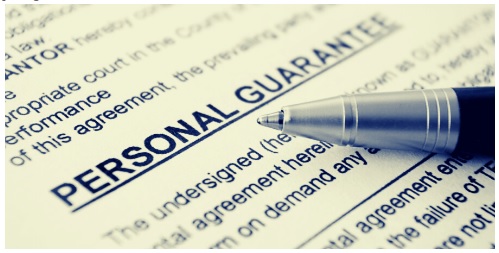- within Accounting and Audit topic(s)
- with Senior Company Executives, HR and Inhouse Counsel
- with readers working within the Healthcare and Law Firm industries
DON'T TAKE IT PERSONALLY!
When the COVID-19 pandemic first landed on Australia's shores some 12 months ago, the insolvency industry braced for a wave of insolvencies following massive interruptions to business (causing a COVID-induced recession). The wave of insolvencies did not ultimately arrive, stymied by unprecedented government stimulus and support.
A key pillar of government intervention reaches the end of its useful life at the end of March (JobKeeper), and with other stimulus and support winding back, we expect to see increasing pressure on cash flow and in turn, an increase in the rate of insolvencies (which are effectively at historic lows).
An increase in the rate of business failures will expose risks faced by business owners to personal liability for their failed business's debts, including for personal guarantees given. The creditors that will almost always have a personal guarantee include a financing bank, a landlord, and major suppliers. It is of no surprise to readers that when a company fails, creditors holding personal guarantees will pursue the directors (or any other party that has given a personal guarantee) to pay the outstanding company debt. Making matters worse, most personal guarantees include a 'charging' clause that makes these creditors a 'secured creditor' over any real property the director owns.
While personal guarantees are an unwanted additional stress for many business owners, they are often unavoidable to access finance or trade credit necessary to support a business plan. In fact, many business owners, particularly for small-to-medium business, would simply be unable to access finance without providing a personal guarantee.
With this in mind, we suggest the following ways directors can help manage their exposure under personal guarantees:
- Carefully read and understand all contractual documentation such as terms of loans, lease and supply agreements etc-and negotiate before agreeing to them.
- Do your best to limit any personal guarantees and put a "cap" on any guarantee given.
- Ensure you keep a register for any personal guarantees given, together with the agreement you have entered into (unfortunately, in our experience we often find directors unable to determine which creditors actually hold a personal guarantee because their paperwork is not in order).
- Consider taking out Personal Guarantee Insurance-an insurance product providing insurance cover for exposure under personal guarantees. While this is a relatively new product in the Australian market, Personal Guarantee Insurance has been available in international markets for some time and may be a useful tool to protect your hard-earned wealth.
- If a personal guarantee is called upon, seek legal advice on the guarantee terms to ensure it is actually enforceable. You may be surprised that it is not unusual to find a personal guarantee is ineffective due to drafting deficiencies, or it has otherwise been inadvertently discharged.
- If the personal guarantee is valid and enforceable, negotiate with that creditor to reduce your liability.
Related articles:
Personal guarantees and Deeds of Company Arrangement
Liquidation-the ugly side for directors
The content of this article is intended to provide a general guide to the subject matter. Specialist advice should be sought about your specific circumstances.


